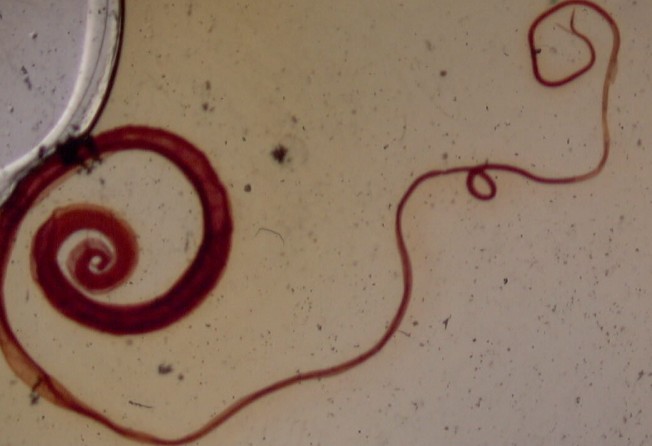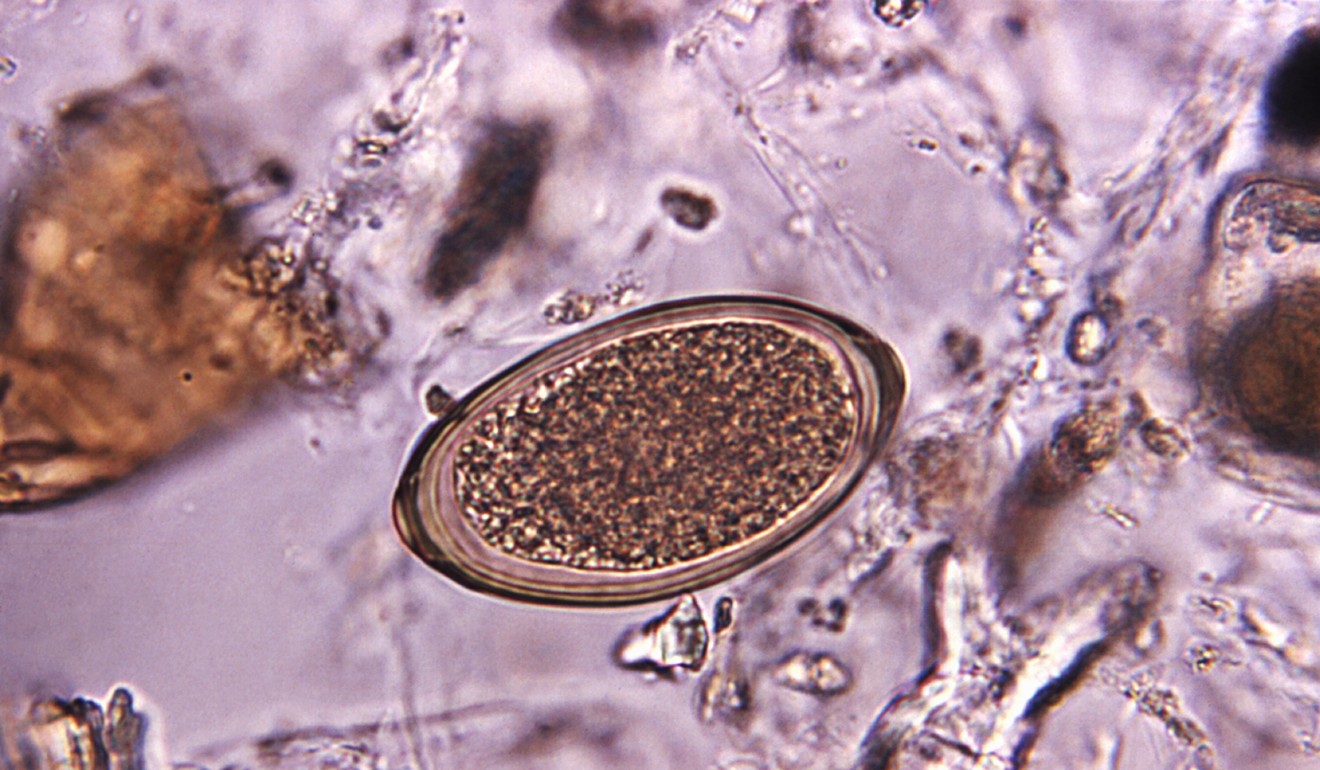
Can eating parasitic worms or their eggs treat some diseases?
Helminthic therapy – ingesting live roundworms – is growing in popularity as a means of fighting various autoimmune disorders, but more evidence is needed of its efficacy, and the treatment is not approved in Hong Kong

Can ingesting parasitic worms help treat certain diseases?
The straight answer: the jury is out
Would you eat worms or their larvae to help cure what ails you? Helminthic therapy – the deliberate ingestion of a controlled number of live parasitic roundworms called helminths – is gaining popularity in treating chronic autoimmune disorders such as multiple sclerosis, Crohn’s disease, inflammatory bowel disease and asthma. Whipworm (Trichuris trichiura) is an example of a helminth that is typically used in this therapy.
How does it work? According to Dr Sunny Wong, clinical assistant professor at the Institute of Digestive Disease at the Chinese University of Hong Kong, it is based on the hypothesis that many of these illnesses have a hyperactive immune component, which may be suppressed by the immune-regulating effects of the helminths once they have been ingested.
Helminthic therapy advocates believe that replenishing the intestinal biome by swallowing parasitic worms, and thereby “balancing out” an overactive immune system, can prevent it from causing harm.
A 2015 review published in the Journal of Evolutionary Medicine estimated that up to 7,000 people worldwide are successfully self-treating inflammatory bowel disease, allergies and more with helminths. This therapy is experimental, though, and whether this type of immunosuppression would be beneficial for certain diseases remains to be seen.

There is also the question of helminthic therapy’s safety. “Nothing can be supposed in medicine – or science in general – until one has data from properly conducted experimental studies,” says Wu. “Any symbiotic organisms living in the gastrointestinal tract exert an influence on the immune system. An alteration in this colony could potentially bring about changes that could be detrimental – or beneficial.”

There is no denying the importance of gut health to one’s overall physical and even mental health. “Through the modulation of the immune system, the gut microbiota – the collective term for the trillions of microbes in the human gut – help our digestion, affect our energy levels and metabolism, and regulate our immunity,” says Wong. “Importantly, the gut microbiota is found to be altered in diseases such as colorectal cancer, inflammatory bowel disease, diabetes, metabolic syndrome, cardiovascular diseases, and even neurological and psychiatric conditions. It is evident that the normal balance of these microbes is disrupted in many of these diseases.”
One of the safest and most effective ways to maintain gut health is to practise healthy lifestyle habits – having a balanced diet, sufficient sleep and exercise, and by avoiding unnecessary antibiotics that may disrupt the gut microbiota.

If you want to try helminthic therapy in Hong Kong you would be hard-pressed to find a medical professional who will administer it. In addition, Wu says that if a treatment is experimental, an ethics committee needs to have approved its research protocol. “As a doctor I can only offer treatments that have been approved by the regulatory authorities.”